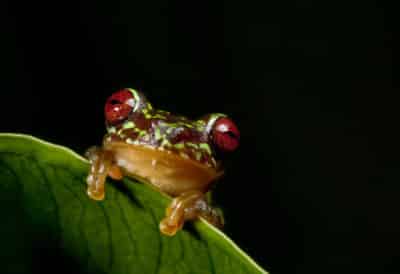It’s almost time for the Conservation Optimism Summit! In two weeks, a cohort of conservationists will be celebrating success stories and sharing skills in St Catherine’s College in Oxford. And I can’t wait.
I’ve been writing about wildlife conservation for the past few years, and that has meant writing about the triumphs- nature reserves declared, species rediscovered, communities coming together for wildlife- and the disasters- swathes of habitat destroyed, species assumed extinct, and an unrelenting trade for wildlife products that would no more cure cancer than my fingernails would.
It’s hard sometimes to stay positive- especially in the face of the looming climate disaster, and when the opposition to conservation- often extraordinary wealthy corporations or unconcerned governments- seem so very powerful.
But we have to celebrate the wins. Though it is hard to quantify, every achievement made by an individual, community or organisation, may have made the difference between a species remaining in the wild or disappearing into the extinction record. If we forget this, and do not cherish every success, we risk losing the motivation that drives us to preserve our natural world. So, if we are not conservation optimists, who will be?
Luckily, there does not seem to be a shortage of conservation optimists! The Conservation Optimism team were able to source some incredibly inspiring people to lead the conversation at the summit, and as the newest member of the team, I was getting very excited writing promotional posts on social media about them.

Guatemala brook frog, Duellmanohyla soralia, a Critically Endangered frog in the Sierra Caral of Guatemala
25 Most Wanted and Romeo’s Quest for Love
In particular, I’m really looking forward to Robin Moore’s plenary talk. I’ve known Robin Moore’s name by his beautiful images of amphibians for a long time. I didn’t know anything more about him other than his photographic style (intimate portraits with a focus on jewel-like eyes) and the fact he was sharing these powerful images freely with wildlife charities. But then I learned that he was part of the excellent communications team at Global Wildlife Conservation behind the Search for Lost Species and #Match4Romeo campaigns, which took conservation stories to a global audience.
So then when I heard about The Search for Lost Species, a global search run by Global Wildlife Conservation (GWC), and realised that Robin Moore was running it, I realised that Robin’s skills as a conservation communicator stretched far beyond the striking photography. The idea was that (from a list of 1,200 plant and animal species considered ‘missing’ and possibly extinct) GWC picked 25 ‘Most Wanted’ lost species from a wide range of biological backgrounds that would become flagships for forgotten wildlife around the world. My first encounter with this campaign was because the first species of the 25, the Jackson’s Climbing or Golden Wonder Salamander, had been rediscovered! What better story could there be to represent conservation optimism than an elusive amphibian, considered extinct, found once more in a habitat that still exists thanks to the conservation organisations we support?
Turns out, there is a better story. The story of Romeo, the world’s loneliest frog. Romeo is a Sehuencas Water Frog who was collected from the wild in 2009 with the hopes of creating a captive breeding programme which would bolster the endangered wild population. But poor Romeo remained alone in an aquarium for more than ten years as biologists failed to find any other frogs to join him… until he got a Match.com dating profile.
In one of the most successful charity- corporate sponsor partnerships to reach global news, GWC and Match.com raised enough money around Valentine’s Day 2018 to fund an expedition team to enter Bolivia’s wilderness once more in search of a Juliet. And just before Valentine’s Day 2019, GWC announced that a Juliet had been found and she, along with four more frogs, would be joining Romeo to help save their species.
Running campaigns that have reached such a wide audience (the story of Romeo and Juliet made it to The Late Show with Stephen Colbert as well as international news) and inspired them to feel emotional about obscure species conservation (had anyone heard of the Sehuencas Water Frog before?) is an incredible achievement. I love writing about conservation and sharing stories to inspire hope, as well as those which relay urgency, and I think these campaigns were exemplar at both.
Robin’s plenary will be all about how to tell hopeful stories that spread to win the attention of a distracted audience and engage action-orientated emotions. I’m really looking forward to hearing from this expert and the many more sessions at this summit which will develop my storytelling skills.
Hope to see you there!
Register before midnight 20 August to get an earlybird discount on your ticket >>


